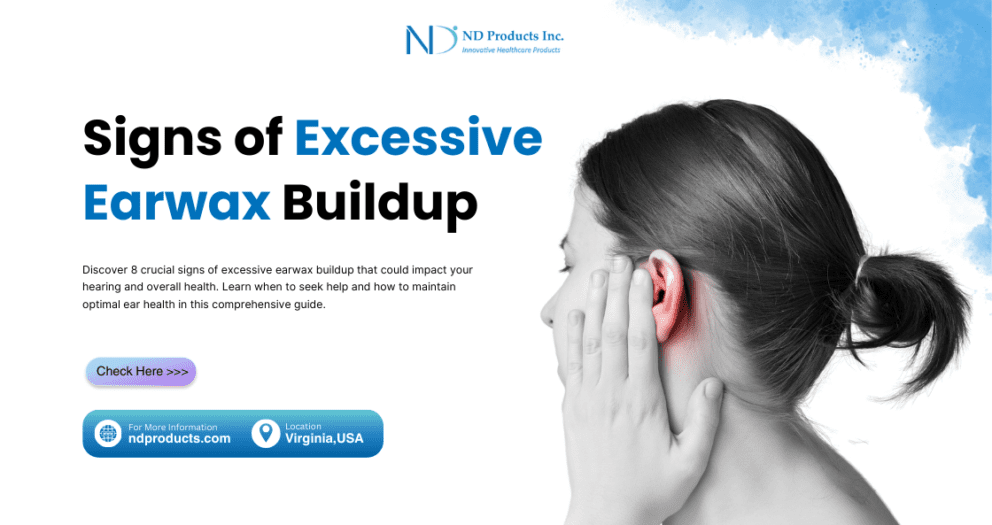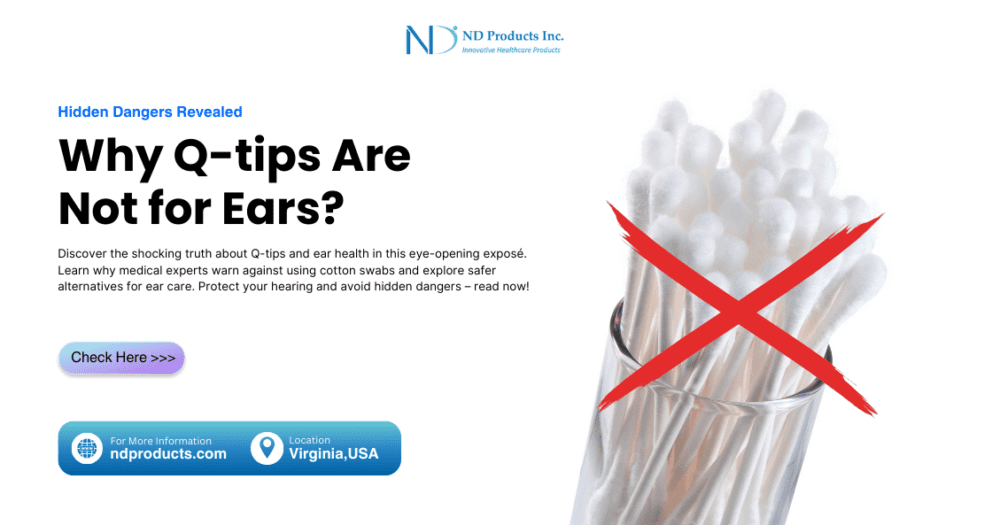We might have heard from friends, relatives, and colleagues that there are certain foods that cause ear wax. Earwax, also known as cerumen, is a natural substance made by glands in the ear canal. It protects the sensitive portions of the ear and keeps the ear canal moist.
However, too much buildup can cause discomfort, hearing issues, and possible infections. Understanding the potential link between particular foods and ear wax might help you make better dietary decisions, resulting in better ear health.
In this blog, we explore this interesting topic, discussing and examining the impact of specific food groups, and providing useful insights.
Understanding Ear Wax Production
Before exploring the possible link between diet and earwax production, it’s important to know how ear wax is formed. The ear canal has special glands that make cerumen, also known as ear wax.
This wax is a mix of secretions from these glands, along with dead skin cells, hair, and dust particles. It gradually moves towards the outer part of the ear as the skin sheds, carrying away debris and maintaining a self-cleaning mechanism.
Top Foods That Cause Ear Wax Buildup
Gluten
Gluten is a protein found in wheat, barley, and rye that helps dough stick together and makes it stretchy. People with celiac disease or gluten intolerance cannot handle gluten, as it can cause digestive problems and other health issues. Gluten-free diets have become popular for various reasons, not just for those with medical needs.
Patients who are gluten sensitive and eat less of it or ingest well-processed gluten appear to have decreased earwax accumulation.
Dairy Products
Dairy products themselves don’t usually cause too much ear wax buildup. However, People with lactose intolerance who don’t avoid dairy products often have more problems with ear wax buildup.
Fatty and Oily Foods
Foods heavy in harmful fats, such as fried foods, processed snacks, and fatty meats, are thought to promote ear wax production. Some believe these foods may cause inflammation in the body, including the ear canal, which can affect the wax-producing glands. A balanced diet with healthy fats, such as those found in avocados, fish, and nuts, might help reduce ear wax buildup.
Salty Foods
While salt is an important part of our diet, eating too many salty foods can cause water retention and swelling. This fluid imbalance might affect the ear canal and its ability to control ear wax production. Choosing low-sodium options when possible can help keep a healthy balance.
Can Smoking, Alcohol, or Other Substances Affect Ear Wax?
Some stimulants like caffeine and alcohol can increase ear wax production, similar to spicy foods, and may lead to blockages.
It’s well known that smoking cigarettes is bad for your health, but it can also increase ear wax production and cause pressure inside your ears, which can lead to blockages or hearing loss. Reducing your intake of caffeine, alcohol, or cigarettes can help promote many health benefits, including healthy ear wax levels.
Foods That Help Manage Ear Wax
While no specific food has been scientifically proven to reduce ear wax buildup, eating a balanced and healthy diet can improve overall ear health and lower the risk of conditions that might cause ear wax buildup.
Tips for Healthy Ears
- Stay hydrated: Drinking plenty of water helps keep your ear canal moist and prevents ear wax from becoming dry and impacted.
- Eat a balanced diet: A diet rich in fruits, vegetables, whole grains, lean protein, and healthy fats can reduce inflammation in your body and support overall ear health.
- Include omega-3 fatty acids: Foods like fatty fish, nuts, and seeds, which are high in omega-3 fatty acids, have anti-inflammatory properties that may reduce inflammation in the ear canal.
Ear Care Do’s and Dont’s
Avoid inserting objects: Never insert objects like cotton swabs, bobby pins, or your fingers into your ears. This can push ear wax deeper into the ear canal and might harm your ears.
Clean your ears safely: Use a washcloth to gently clean the outside of your ears. Avoid using ear candles or products that may not be safe to remove ear wax.
Protect your ears from loud noises: Loud sounds, such as loud music or machinery, can damage your hearing over time. Wear earplugs or other hearing protection in noisy areas.
Keep your ears dry: After swimming or showering, gently dry your ears with a towel or use a hair dryer on a low setting to remove any moisture.
Treat ear infections promptly: If you have ear pain, itching, or discharge, see a doctor right away to prevent the infection from getting worse.
Is it Normal for a Ball of Wax to Come Out of Your Ear?
While it can be surprising, it’s possible for a large ball of wax to come out of your ear occasionally. Ear wax is made by glands in the ear canal to protect it from dirt and debris. Sometimes, ear wax can build up and harden, causing a blockage. This can lead to symptoms like hearing loss, ringing in the ears, or pain.
If you notice a big ball of wax coming out of your ear, it likely means your ear wax had built up and hardened. This is natural and not usually a problem. But if you have any of the symptoms mentioned, it’s important to see an audiologist to get your ears cleaned.
Five Methods to Avoid for Ear Cleaning
While it’s important to keep your ears clean, it’s not recommended to over-clean them or use methods that might push ear wax deeper into the ear, leading to possible injury or infections.
Here are five methods you should avoid for cleaning ear wax:
- Cotton swabs
- Bobby pins or other sharp objects
- Corners of napkins or tissues
- Ear wax candles
- Syringes
Conclusion
The food and drinks we consume can impact our health in many ways, including the type and quality of ear wax our bodies produce. Eating a balanced diet, drinking enough water, and being mindful of how certain foods affect our ears can help maintain healthier ear wax and lower the chance of blockages or discomfort.
It’s important to remember that everyone’s body reacts differently, so paying attention to how your body responds and seeking help from a professional when needed is essential for keeping your ears and overall health in good shape.





